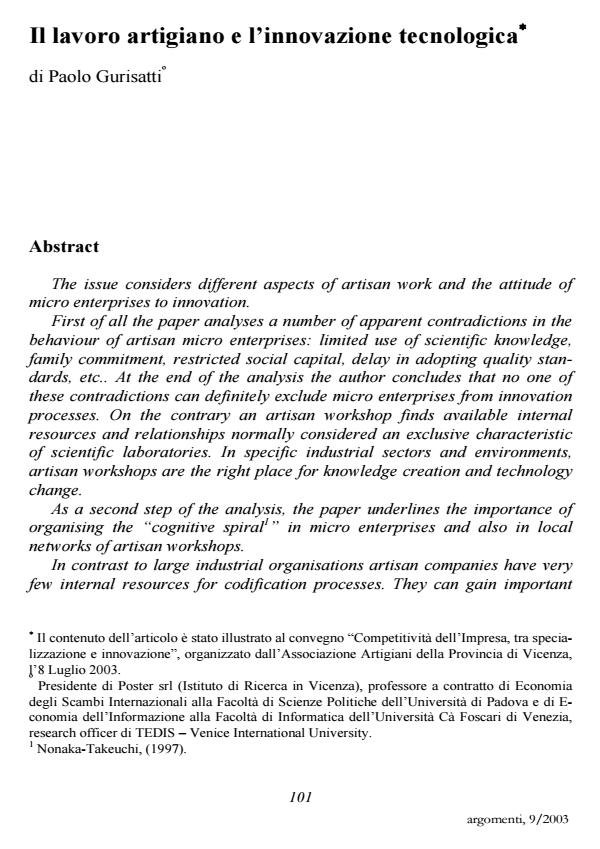Il lavoro artigiano e l'innovazione tecnologica
Journal title ARGOMENTI
Author/s Paolo Gurisatti
Publishing Year 2004 Issue 2003/9
Language Italian Pages 28 P. File size 227 KB
DOI
DOI is like a bar code for intellectual property: to have more infomation
click here
Below, you can see the article first page
If you want to buy this article in PDF format, you can do it, following the instructions to buy download credits

FrancoAngeli is member of Publishers International Linking Association, Inc (PILA), a not-for-profit association which run the CrossRef service enabling links to and from online scholarly content.
The issue considers different aspects of artisan work and the attitude of micro enterprises to innovation. First of all the paper analyses a number of apparent contradictions in the behaviour of artisan micro enterprises: limited use of scientific knowledge, family commitment, restricted social capital, delay in adopting quality stan-dards, etc.. At the end of the analysis the author concludes that no one of these contradictions can definitely exclude micro enterprises from innovation processes. On the contrary an artisan workshop finds available internal resources and relationships normally considered an exclusive characteristic of scientific laboratories. In specific industrial sectors and environments, artisan workshops are the right place for knowledge creation and technology change. As a second step of the analysis, the paper underlines the importance of organising the cognitive spiral in micro enterprises and also in local networks of artisan workshops. In contrast to large industrial organisations artisan companies have very few internal resources for codification processes. They can gain important experiences and produce tacit knowledge, but they face difficulties in sustaining the evolutionary cycle of codifying knowledge toward the organisation and scientific level. They can overcome this disadvantage by investing in specific internal rules and behaviours with collaborators and by networking with other agents at the territorial level. Artisan companies can compete in globalised markets by creating new knowledge towns or districts. As a third step of the analysis the author considers some examples of good practices, for artisan enterprises and networks innovation, with reference to the Veneto region in Italy.
Paolo Gurisatti, Il lavoro artigiano e l'innovazione tecnologica in "ARGOMENTI" 9/2003, pp , DOI: